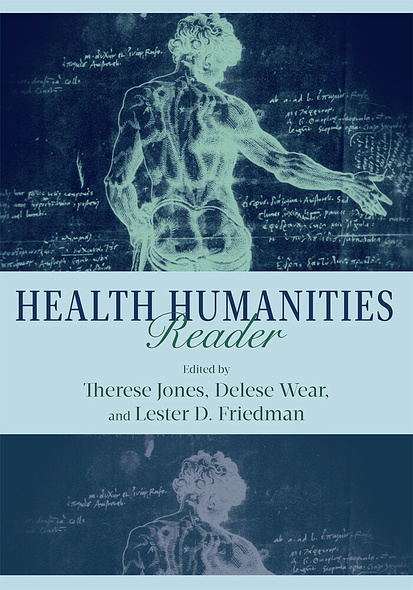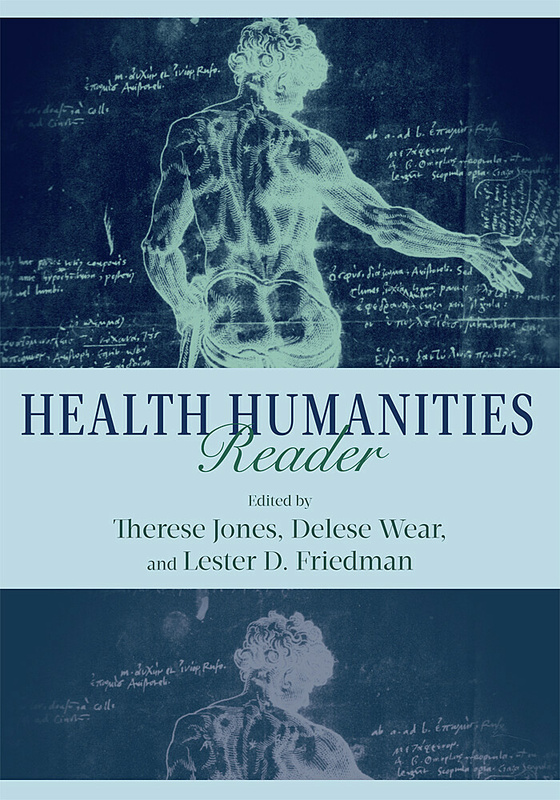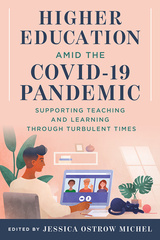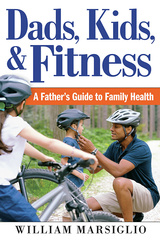
416 pages, 7 x 10
12 photographs, 2 graphic chap
Paperback
Release Date:28 Aug 2014
ISBN:9780813562469
Health Humanities Reader
Rutgers University Press
Over the past forty years, the health humanities, previously called the medical humanities, has emerged as one of the most exciting fields for interdisciplinary scholarship, advancing humanistic inquiry into bioethics, human rights, health care, and the uses of technology. It has also helped inspire medical practitioners to engage in deeper reflection about the human elements of their practice.
In Health Humanities Reader, editors Therese Jones, Delese Wear, and Lester D. Friedman have assembled fifty-four leading scholars, educators, artists, and clinicians to survey the rich body of work that has already emerged from the field—and to imagine fresh approaches to the health humanities in these original essays. The collection’s contributors reflect the extraordinary diversity of the field, including scholars from the disciplines of disability studies, history, literature, nursing, religion, narrative medicine, philosophy, bioethics, medicine, and the social sciences.
With warmth and humor, critical acumen and ethical insight, Health Humanities Reader truly humanizes the field of medicine. Its accessible language and broad scope offers something for everyone from the experienced medical professional to a reader interested in health and illness.
In Health Humanities Reader, editors Therese Jones, Delese Wear, and Lester D. Friedman have assembled fifty-four leading scholars, educators, artists, and clinicians to survey the rich body of work that has already emerged from the field—and to imagine fresh approaches to the health humanities in these original essays. The collection’s contributors reflect the extraordinary diversity of the field, including scholars from the disciplines of disability studies, history, literature, nursing, religion, narrative medicine, philosophy, bioethics, medicine, and the social sciences.
With warmth and humor, critical acumen and ethical insight, Health Humanities Reader truly humanizes the field of medicine. Its accessible language and broad scope offers something for everyone from the experienced medical professional to a reader interested in health and illness.
This is a landmark volume that sets the standard for any future collection in medical/health humanities. It is by turns authoritative, funny, edgy, creative and personal—sometimes all in one piece.
It's about time! The field of medical humanities has been waiting for a reader, and this one is it. With an excellent array of essays in appropriate topics by top people in the field, this book should set the standard for the next ten years. It will prove fascinating to undergraduates, graduate students in both the humanities and the health sciences, and to the general public and particularly those who are or will be patients—which of course is everyone.
This bold, intelligent, and vitally comprehensive collection is a truly interdisciplinary achievement and an indispensible resource.Through twelve judiciously selected thematic clusters, Rutgers’s Health Humanities Reader consolidates this new subfield by capturing both the complexity and excitement of health humanities scholarship. An essential tool with practical applications both inside and outside the classroom.
[This book] consists of nearly 50 chapters, some of which deal with classic medical humanities topics, such as the notions of health and disease and the theory of the body. The majority of the book centers on more contemporary—some would say postmodern—issues, such as gender and sexuality, disability, and aging. Recommended.
This is a landmark volume that sets the standard for any future collection in medical/health humanities. It is by turns authoritative, funny, edgy, creative and personal—sometimes all in one piece.
It's about time! The field of medical humanities has been waiting for a reader, and this one is it. With an excellent array of essays in appropriate topics by top people in the field, this book should set the standard for the next ten years. It will prove fascinating to undergraduates, graduate students in both the humanities and the health sciences, and to the general public and particularly those who are or will be patients—which of course is everyone.
This bold, intelligent, and vitally comprehensive collection is a truly interdisciplinary achievement and an indispensible resource.Through twelve judiciously selected thematic clusters, Rutgers’s Health Humanities Reader consolidates this new subfield by capturing both the complexity and excitement of health humanities scholarship. An essential tool with practical applications both inside and outside the classroom.
[This book] consists of nearly 50 chapters, some of which deal with classic medical humanities topics, such as the notions of health and disease and the theory of the body. The majority of the book centers on more contemporary—some would say postmodern—issues, such as gender and sexuality, disability, and aging. Recommended.
THERESE JONES is an associate professor at the Center for Bioethics and Humanities and director of the Arts and Humanities in Healthcare Program at the University of Colorado Anschutz Medical Campus. She is the editor of the Journal of Medical Humanities, and her extensive publications include Sharing the Delirium: Second Generation AIDS Plays and Performances.
DELESE WEAR is a professor of behavioral and community health sciences at Northeast Ohio Medical University. She has written and edited numerous books, including Educating for Professionalism: Creating a Culture of Humanism in Medical Education.
LESTER D. FRIEDMAN is chair of media and society at Hobart and William Smith Colleges. A leading scholar on media representations of medicine, he is the editor of Cultural Sutures: Medicine and Media and co-editor of Picture of Health: Medical Ethics and the Movies.
DELESE WEAR is a professor of behavioral and community health sciences at Northeast Ohio Medical University. She has written and edited numerous books, including Educating for Professionalism: Creating a Culture of Humanism in Medical Education.
LESTER D. FRIEDMAN is chair of media and society at Hobart and William Smith Colleges. A leading scholar on media representations of medicine, he is the editor of Cultural Sutures: Medicine and Media and co-editor of Picture of Health: Medical Ethics and the Movies.
PART I: DISEASE AND ILLNESS
Chapter 1 Being a Good Story: The Humanities as Therapeutic Practice
Chapter 2 Illuminating the It, Thee, and We of Disease and Illness:The Metamorphosis and Related Works
Chapter 3 “This Weird, Incurable Disease”: Competing Diagnoses in the Rhetoric of Morgellons
Chapter 4 My Quest for Health
PART II: DISABILITY
Chapter 5 Disability in Two Doctor Stories
Chapter 6 Music and Disability
Chapter 7 American Narrative Films and Disability: An Uneasy History
Chapter 8 Standout
PART III: DEATH AND DYING
Chapter 9 When the Doctor Is Not God: The Impact of Religion on Medical Decision-Making at the End of Life
Chapter 10 Postmodern Death and Dying: A Literary Analysis
Chapter 11 Second-Degree Block: Poem and Commentary
PART IV PATIENT-PROFESSIONAL RELATIONSHIPS
Chapter 12 Social Studies: The Humanities, Narrative, and the Social Context of the Patient-Professional Relationship
Chapter 13 Humanities and the Medical Home
Chapter 14 Occupational Medicine
PART V: THE BODY
Chapter 15 The Virtues of the Imperfect Body
Chapter 16 Seeing Bodies in Pain
Chapter 17 Public Fetuses
Chapter 18 More Body: A Performance for Five (or More) Bodies
PART VI: GENDER AND SEXUALITY
Chapter 19 Adult Intake Form
Chapter 20 What Is Sex For? or, The Many Uses of the Vag
Chapter 21 “I Always Prefer the Scissors”: Isaac Baker Brown and Feminist Histories of Medicine
Chapter 22 Comics in the Health Humanities: A New Approach to Sex and Gender Education
Chapter 23 I Am Gula, Hear Me Roar
PART VII: RACE AND CLASS
Chapter 24 Listening as Freedom: Narrative, Health, and Social Justice
Chapter 25 Race and Mental Health
Chapter 26 Law’s Hand in Race, Class, and Health Inequities: On the Humanities and the Social Determinants of Health
Chapter 27 Dark Rooms of Our Souls
PART VIII: AGING
Chapter 28 “Old Age Isn’t a Battle, It’s a Massacre”: Reading Philip Roth’s Everyman
Chapter 29 “Do You Remember Me?”: Construction of Alzheimer’s Disease in Literature and Film
Chapter 30 Love in the Time of Dementia
PART IX MENTAL ILLNESS
Chapter 31 Narrating Our Sadness, with a Little Help from Humanities
Chapter 32 Teaching Narratives of Mental Illness
Chapter 33 Community Psychiatry and the Medical Humanities
Chapter 34 Culpability
PART X SPIRITUALITY AND RELIGION
Chapter 35 Rites of Bioethics
Chapter 36 Health and Humanities: Spirituality and Religion
Chapter 37 Scientia Mortis and the ArsMoriendi: To the Memory of Norman
Chapter 38 Meditations of an Anesthesiologist: Poem and Commentary
PART XI: SCIENCE AND TECHNOLOGY
Chapter 39 Andromeda’s Futures: A Story of Humanities, Technology, Science, and Art
Chapter 40 Knowing and Seeing: Reconstructing Frankenstein
Chapter 41 A Brief History of Love: A Rationale for the History of Epidemics
Chapter 42 Calcedonies
PART XII HEALTH PROFESSIONS EDUCATION
Chapter 43 Teaching Autism through Naturalized Narrative Ethics: Closing the Divide between Bioethics and Medical Humanities
Chapter 44 Courting Discomfort in an Undergraduate Health Humanities Classroom
Chapter 45 The Medical Humanities in Medical Education: Toward a Medical Aesthetics of Resistance
Chapter 46 In Defense of Cheaper Stethoscopes






